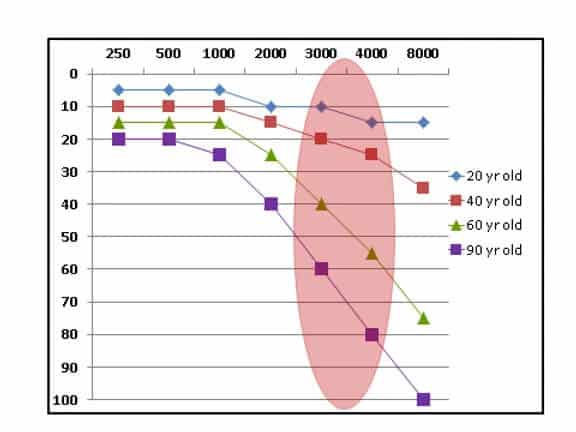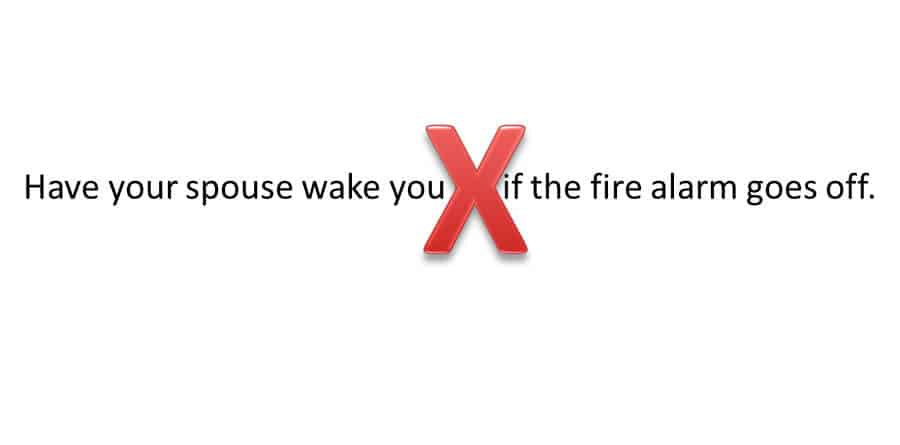“Of course I can hear our smoke detector. That thing is so loud. It could wake the neighbors!” “You bet I can hear the fire alarm even without my hearing aids. It happened the other day when I was cooking. That darn thing is always going off.” “I’m a light sleeper. I know I would wake up and hear the alarm at night even without my hearing aids.” “I don’t always hear the doorbell when I’m at the back of the house, but who really does?”
Don’t let confidence and pride come between you (or your loved ones) and safety.
We all know the incessant beep of a smoke alarm. Whether it is a cooking experiment gone wrong or just the low-battery indicator, the squeal of the alarm can raise hairs.
When I ask my patients if they think they could hear the smoke alarm go off at night, I am undoubtedly met with “Of course, I know I would.” My patients have high confidence that even without their hearing aids in the dark of night, their ears will not fail them, not with this familiar sound.
Unfortunately, they may be wrong, and it scares me.
Here are the alarming facts:
- Standard smoke alarms use high pitches (3000-4000Hz) for their alerting signal (1)
- High pitches become more difficult to hear as we age (see graph) (2)
- Even normal hearing individuals may need signals to be 40 decibels louder in order to be aroused fromsleep (3)
- Nearly 50% of adults with hearing loss do not wake up to a 3100 Hz tone presented at loudness levels meeting current Federal Fire Codes (4)

The graph on the right shows the red region, which is the pitch of standard fire alarms.
If you struggle to hear high pitches, which affects your ability to hear the clarity of speech, soft voices and women’s voices, you may be at risk of not hearing the smoke alarm.
Does your hearing looks anything like the green or purple line? They represent average hearing levels for people 60 years old and above. They show significant amounts of hearing loss at the critical pitch for fire safety. If you struggle to hear this pitch, you need a solution.
So, what can you do about it?

Talk with your Audiologist.
There are smoke alarm adapters that can convert the high pitch to an easy-to-hear low pitch. There are also adapters which can shake the bed, which is very helpful for people with significant amounts of hearing loss and/or cochlear implants.
Call to schedule an appointment to see which solution is best for you and your family.
713-942-8205
Stay tuned for our next post which reviews bedside smoke alarms for people with hearing loss.
A special thank you to the team at Oaktree Products for their continued efforts in providing Audiologists with effective solutions for those with hearing loss.
- Lee, A. (2005). The audibility of smoke alarms in residential homes. CPSC-ES-0503.
- Oaktree Products. https://www.oaktreeproducts.com/smoke-detector-facts-for-patients
- Bruck, D., Ball, M., Thomas, I., and Rouillard, V. (2008). How does pitch and pattern of a signal affect auditory arousal threshold? Journal of Sleep Research, Jun 18(2): 196-203.
- Oaktree Products. https://www.oaktreeproducts.com/smoke-detector-research

